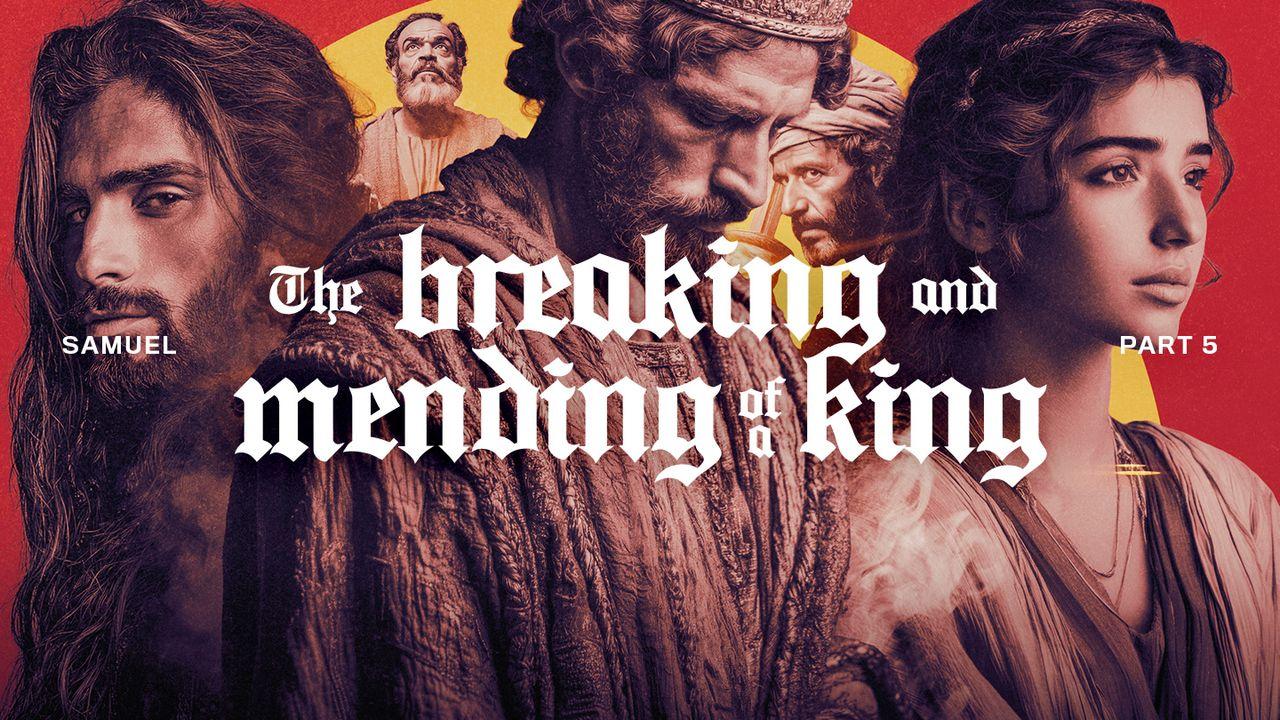2 Samuel 11:2-20: The Breaking and Mending of a KingSample

Where Sin and Consequences Meet Grace and Forgiveness
By Danny Saavedra
“Then David said to Nathan, ‘I have sinned against the Lord.’ Nathan replied, ‘The Lord has taken away your sin. You are not going to die.’”—2 Samuel 12:13 (NIV)
David was fully at fault for everything that happened between him, Bathsheba, and Uriah. And after being exposed by Nathan, after the truth was dragged into the light, he could’ve spiraled and run, or he could have taken a page out of his predecessor’s book and denied or deflected. But he didn’t.
David stood still in the face of judgment and said the most real and important words a sinner can ever utter: “I have sinned against the Lord.” No excuses, no explanations, no justifications, no rationalizations, no self-preservation. Just full, honest confession, brokenness, and remorse.
Unlike Saul, even in his failures and shortcomings, even in his wicked, abhorrent, despicable, inexcusable actions, David still showed us who he really was. He may have forgotten for a bit; he may have strayed, gotten lost, but when Nathan pointed out what he’d done, David remembered who he was, how far he’d strayed, and humbly admitted his sins before the Lord.
Now, consider the Lord’s response, friend: “The Lord has taken away your sin. You are not going to die.” Grace. Unbelievable grace. No burning coal from heaven, no rejection. God forgave him. But even though the sin was forgiven, the consequences remained. Nathan revealed to David that the child born of his sin would die. It’s a gut-wrenching judgment. And let’s be real...it messes with us.
This moment raises hard questions. Is God cruel? Is He vengeful? Is He punishing the innocent for the guilty? The answer is found not just in this moment, but in the bigger story. David was God’s king, a visible representative of Yahweh before the nations. If his sin was left unpunished, if the world saw a king commit murder and adultery and walk away unscathed, it would’ve made a mockery of God’s justice. This wasn’t about retribution; it was about preserving the holiness of God’s name. And yet, even here, we see a shadow of the gospel—an innocent dying because of someone else’s sin; a son suffering because of the actions of another. But unlike this child, the Son of God would rise again, forever closing the distance between judgment and mercy.
David didn’t shrug off the consequence. He fasted. He prayed face down for seven days, begging God to spare the child. Even though he knew what Nathan said, he hoped. He pleaded. That’s what faith in the goodness of God looks like—it doesn’t deny His justice, but it clings to His mercy. And when the child died, something shocking happened. David got up. He bathed. He worshiped. He ate. His servants didn’t understand. How was he able to move on so quickly?
Why mourn before and not after? David answered with one of the most profoundly hopeful statements in all of Scripture: “I will go to him, but he will not return to me” (2 Samuel 12:23 NIV). David believed in eternity. He knew the story didn’t end with death. He knew God’s goodness extended beyond the grave. He knew that even though this child wouldn’t be raised in his arms, he would be reunited with him one day in God’s presence. That’s the kind of hope only God can offer—the kind that doesn’t erase the pain, but carries you through it.
Do you see it? God isn’t cruel. He didn’t punish the child. In fact, I believe the boy didn’t suffer at all. I believe he was spared the horrors and pain of this world and found himself in the presence of the heavenly Father. No trauma, no war, no dysfunction...only God. He may have died, but he wasn’t punished for David’s sin. I hope you see that.
So, while this passage is raw and uncomfortable, it’s also one of the most powerful pictures of what repentance, consequence, grace, and hope look like together. David confessed and was forgiven, but he still mourned the fallout of his sin. He grieved, but not as one without hope.
This is the strange and beautiful tension of following God in a broken world. Sin doesn’t just vanish without impact, but neither does grace. There are still things in our lives that bear the scar of bad choices, seasons we wish we could undo, consequences that outlast the moment. But in Christ, none of that disqualifies us. In Christ, the innocent didn’t just die in our place; He rose. And that means restoration isn’t just possible; it’s promised.
Pause: Is there a sin you’ve buried but never confessed? Is there pain in your life that you’ve assumed is punishment, but could be part of God’s loving discipline?
Practice: Read Psalm 51 today...slowly. Make David’s prayer your own. If you’ve been carrying guilt, bring it into the light.
Pray: Lord, I’ve sinned against You and sometimes others. But You are merciful. Cleanse me. Restore me. Help me worship You, even when I hurt. Thank You that Jesus took the ultimate consequence so I could live free. In Jesus’ name, I pray. Amen.
Scripture
About this Plan

In this devotional, we'll explore 2 Samuel 11:2-20 as we see the fall of David, the war with Absalom, and his return to Jerusalem.
More
We would like to thank Calvary Chapel Ft. Lauderdale for providing this plan. For more information, please visit: https://resources.calvaryftl.org/samuel









